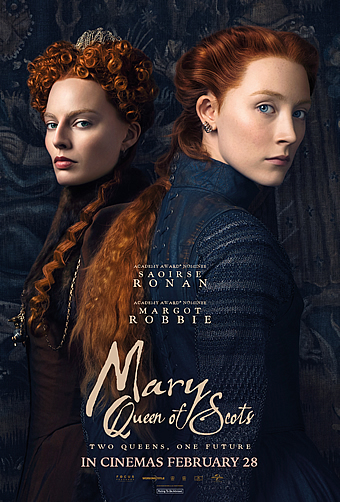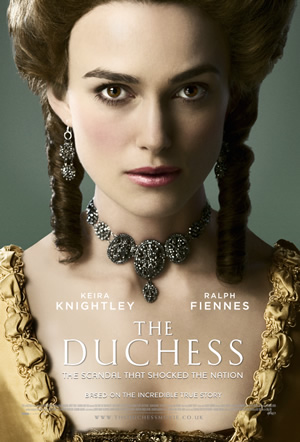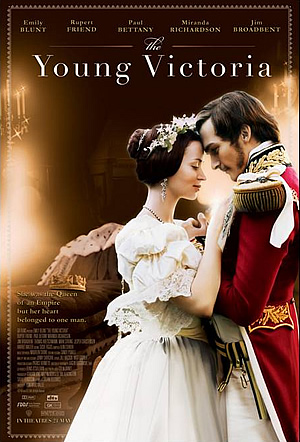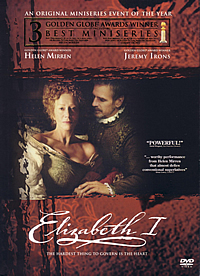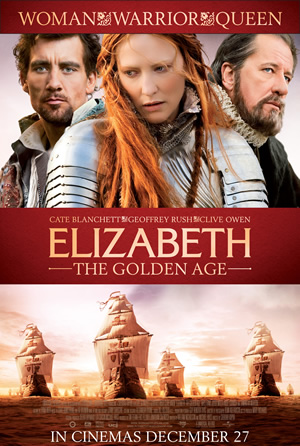MARY QUEEN OF SCOTS (2018)
Genre: Drama
Director: Josie Rourke
Cast: Saoirse Ronan, Margot Robbie, Jack Lowden, Joe Alwyn, Gemma Chan, Ismael Cordova
RunTime: 2 hrs 5 mins
Rating: M18 (Sexual Scene)
Released By: UIP
Official Website:
Opening Day: 28 February 2019
Synopsis: “Mary Queen of Scots” explores the turbulent life of the charismatic Mary Stuart (Ronan). Queen of France at 16 and widowed at 18, Mary defies pressure to remarry. Instead, she returns to her native Scotland to reclaim her rightful throne. But Scotland and England fall under the rule of the compelling Elizabeth I (Robbie). Each young Queen beholds her “sister” in fear and fascination. Rivals in power and in love, and female regents in a masculine world, the two must decide how to play the game of marriage versus independence. Determined to rule as much more than a figurehead, Mary asserts her claim to the English throne, threatening Elizabeth’s sovereignty. Betrayal, rebellion, and conspiracies within each court imperil both thrones – and change the course of history.
Movie Review:
Like many Tudor dramas, ‘Mary Queen of Scots’ takes creative license with historical events, but few end up as frustrating as this long-gestating film from first-time director Josie Rourke and writer Beau Willimon (of Netflix’s ‘House of Cards’). It isn’t that it takes significant dramatic liberties with the rivalry between royal cousins Mary Stuart and Elizabeth Tudor, a.k.a. Mary, Queen of Scots and Elizabeth I, but rather just how dull, artificial and contrived the political drama ends up being. Heck, you’re much better off with Netflix’s ‘The Crown’, or any one of them Korean period palace dramas, or even China’s ‘Story of Yanxi Palace’ than this slice of period bullshit.
Right from the start, the film lays out where it will end as well as its intentions. From her prison cell, Mary (Saoirse Ronan) is led to the scaffold surrounded by British royals, whereupon her ladies-in-waiting remove her black dress to reveal a red gown underneath. Oh yes, Mary will be executed in the end on Elizabeth’s (Margot Robbie) orders, and the choice of colour signifies that she intends her death to be martyrdom. Mary’s last steps to her place of execution are intercut with that of Elizabeth’s in her palace courtyard, who exclaims with remorse as a gentle winter snow falls upon her. Can it be more obvious that we are meant to compare and contrast these two women?
And yet, the film fails both itself and its audience by being an utterly muddled character study of either female protagonist. On one hand, it gives Elizabeth little to do, except engaging occasionally in tense conversation with her cunning advisor William Cecil (Guy Pearce, in a role he could have sleepwalked through) and survive a particularly nasty bout of smallpox. It doesn’t know whether it wants Elizabeth to be a spinster resentful that she is unable to be a traditional queen like Mary (who marries and bears an heir), or a kindred spirit who recognises how both of them are strong female spirits hamstrung by male politics, and indeed tries to have it both ways; in fact, it even imagines a meeting between both queens (that never happened) near the end just to reiterate the point that they are opposites only by circumstance.
On the other, it also cannot make up its mind just what sort of queen Mary should be. It wants Mary to be a progressive non-conformist who would not simply submit to the machinations of her royal council or of that of England’s wishes; it also wants Mary to be a feminist at heart, writing to Elizabeth to appeal for female solidarity by ruling in harmony and not “through a treaty drafted by men lesser than ourselves”. But then it would so readily have her falling for the charms of the lustful Lord Darnley (Jack Lowden), when pretty much everyone close to her can see that he intends to marry her out of ambition. Then when confronted with his treachery, Mary steadfastly refuses to divorce him out of blind allegiance to her Catholic faith; and worse still, she would later on out of spite put aside all vestige of solidarity and warn Elizabeth plainly that “if you murder me, remember you murder your sister, and you murder your queen”.
Quite frankly, it was truly vexing watching Mary vacillate between fierce and feeble, knowing damn well that it is not because Mary was like that in true character but because Willimon’s script just doesn’t know what sort of person it wants her to be. Even more frustrating is his insistence on squeezing every single bit of detail, no matter how forced, into the narrative, resulting in an unnecessarily convoluted second half that can scarcely give enough attention to each twist and turn. By the time we get to how her own royal council, including her most trusted aide Lord Bothwell (Martin Compston) turns against her to murder Lord Darnley, and subsequently her abdication of the throne, we can hardly be bothered about her impending doom at the blade of the English.
On her part, Rourke doesn’t do her film any favours, hardly attempting to smoothen out the kinks in the storytelling. Because of her theatrical background (she has been artistic director of the Donmar Warehouse theatre in London since 2012), the scenes have a staged-in feel, which adds to the overall stiltedness of the film. And what are we to make of the token diversity inclusions, including Gemma Chan as Elizabeth’s confidante Elizabeth Hardwicke, Adrian Lester as the English ambassador to Scotland Lord Randolph, and Ismael Cruz Córdova as Mary’s gay lady-in-waiting David Rizzio? Do we really need to practise such colour-blind casting; if so, why not go all the way and cast Chan or someone Chinese to play Mary or Elizabeth?
Even with strong lead performances by both Ronan and Robbie, ‘Mary Queen of Scots’ is a misbegotten period drama that should have left to die quietly when Scarlett Johannson dropped out of the title role back in 2012. However noble its intentions of female empowerment, it undermines itself by botching what its titular character represents, as well as that of her obvious foil. If you’re going to manipulate history, the least you could do is to make it worthwhile, and do so for good reason. Unless you wish to gaze at opulent sets and lavish costumes, you’d find nothing to enjoy about this period bullshit, so do not bother indulging it with your time.
Movie Rating:


(Muddled, incoherent and pointless, this period political thriller takes dramatic liberties with Tudor history and turns it into period bullshit)
Review by Gabriel Chong
You might also like:
